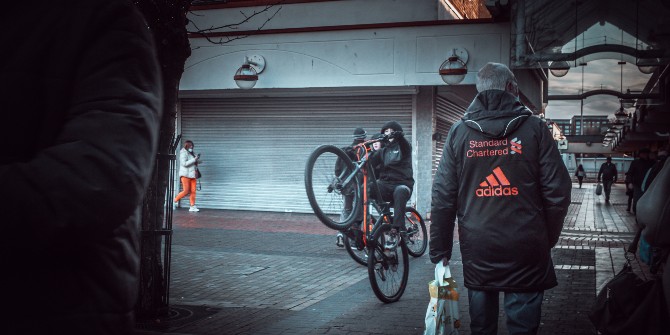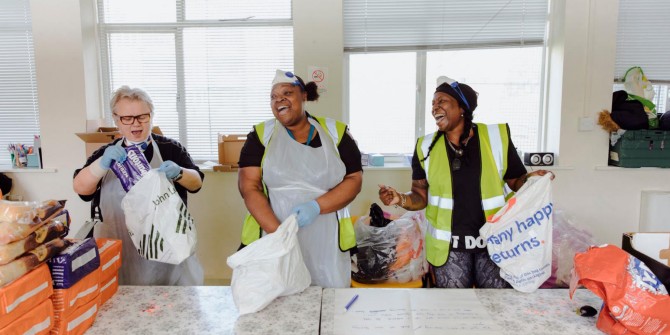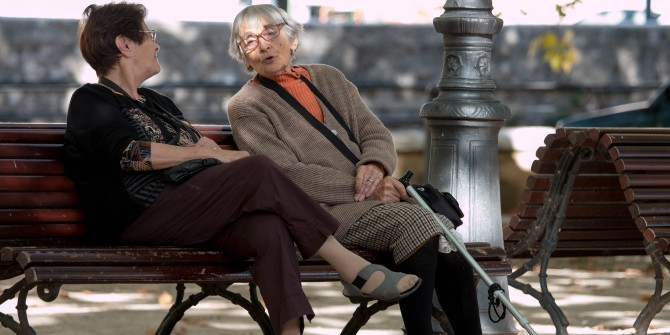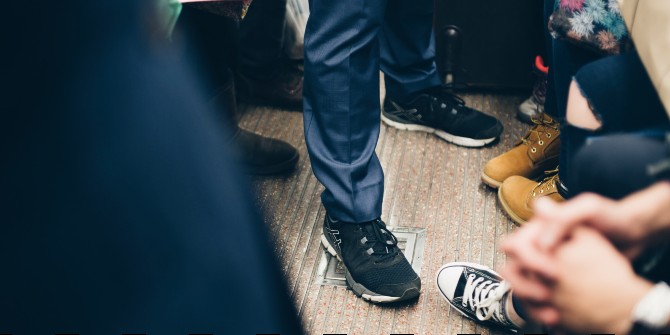Elaine Bedell, the chief executive of London’s Southbank Centre, looks at how the venue has weathered the pandemic, the return of live audiences and the challenges of streaming.
When it was built in 1951, the Southbank Centre was an extraordinarily innovative piece of architecture. It includes three concert halls and the Hayward Gallery, but it was intended to be civic space that was open to everyone: London’s living room. We open at 10am. People come in to work and to think, sometimes because they have nowhere else to go. As the day goes on they are joined by concert-goers, people attending talks, and perhaps dancers rehearsing. We have monthly tea dances for those suffering from social isolation or dementia. Community groups can use our space for free if they’re local. In this way, people get an introduction to some element of our cultural programme — but if they don’t want to join it, that’s fine.
After the second world war, the government recognised that a traumatised country needed arts and culture, alongside jobs and housing
Until the pandemic, we were not a very digitally savvy organisation, but we quickly discovered how much we needed digital and managed to stream events for free from behind closed doors during much of 2020. We were acutely aware that freelancers only got paid if they played, so we did as much as we could to bring orchestras back. Every cultural institution rushed to put events online during the pandemic. The effect was overwhelming, and completely uncurated, so it was hard to find the excellent in amongst the rest.
The Centre fully reopened to visitors in September 2021, but a digital element will continue. A number of our events are hybrid, with simultaneous streaming, and we are investing quite heavily in that digital infrastructure, even though it is still unclear what the uptake will be. During COVID we shared a streaming platform with other cultural organisations, but we are now developing our own channel and digitising our archive so we can stream that too.
At the moment, no one is making a great deal of money from streaming compared to ticket sales, and like most venues these make up a large part of our income. Unsurprisingly, some regional theatres that relied on digital events last year are reverting to in-person only events.
We desperately want people to come back for the live experience
But we desperately want people to come back for the live experience. Attendance at the South Bank is still pretty volatile. Contemporary music is showing every sign of being alive and kicking – pretty much every event we do is sold out — and comedy is similar. Many of the literature talks are very well attended. But classical concerts are still showing signs of caution, which suggests that a demographic issue is at work. I think this is not a reluctance to come to the halls, which are very COVID-safe — much safer than supermarkets, for example — but worries about taking public transport in central London. The congestion and parking charges that were brought in a couple of years ago have deterred some people who want to drive. Inevitably, since tourism was also a big part of our ecosystem, our visitor numbers have suffered.
The Southbank is very affected by home working. There is no doubt that going to an event after work is an easy hop and step if you work in central London. If it involves a commute, it’s very different, and theatres especially are being affected by that. Thursdays in particular are much livelier than they used to be. We now say that Thursday night is the new Friday night, because many people choose to work at home on Fridays. Historically, theatres were never open on Sundays, but now the West End has introduced the Sunday performance and they are probably here to stay. We are still closed on Mondays and Tuesdays due to the financial constraints imposed by the pandemic. Everyone is having to think about slightly different ways of providing art and activity for people.
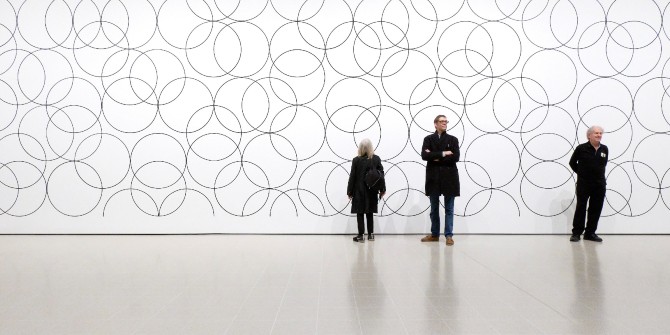
The Southbank Centre is not wholly publicly funded: the funds we get from the state are not sufficient for what we have to do. Even before the pandemic, we had to become commercially astute and innovative. All the big cultural institutions have shown that we were more than capable of pivoting when we were forced to close our doors during the pandemic. The £1.57bn Cultural Recovery Fund, which was open to established institutions as well as small companies that were struggling to survive, has helped. It is important, though, that the new funding for levelling up is not to the detriment of our very culturally vibrant and diverse capital, which continues to be a big draw.
After the second world war, the government recognised that a traumatised country needed arts and culture, alongside jobs and housing. Culture is essential for a nation’s health. I’m confident that people will return to big cultural institutions as the pandemic recedes.
This post represents the views of the author and not those of the COVID-19 blog, nor LSE. It is based on Elaine Bedell’s contribution to Changing Cultures, an Urban Age Debate held on 13 October 2021 and hosted by LSE Cities, the Alfred Herrhausen Gesellschaft and the LSE School of Public Policy with knowledge partners GCDN Global Cultural Districts Network.


